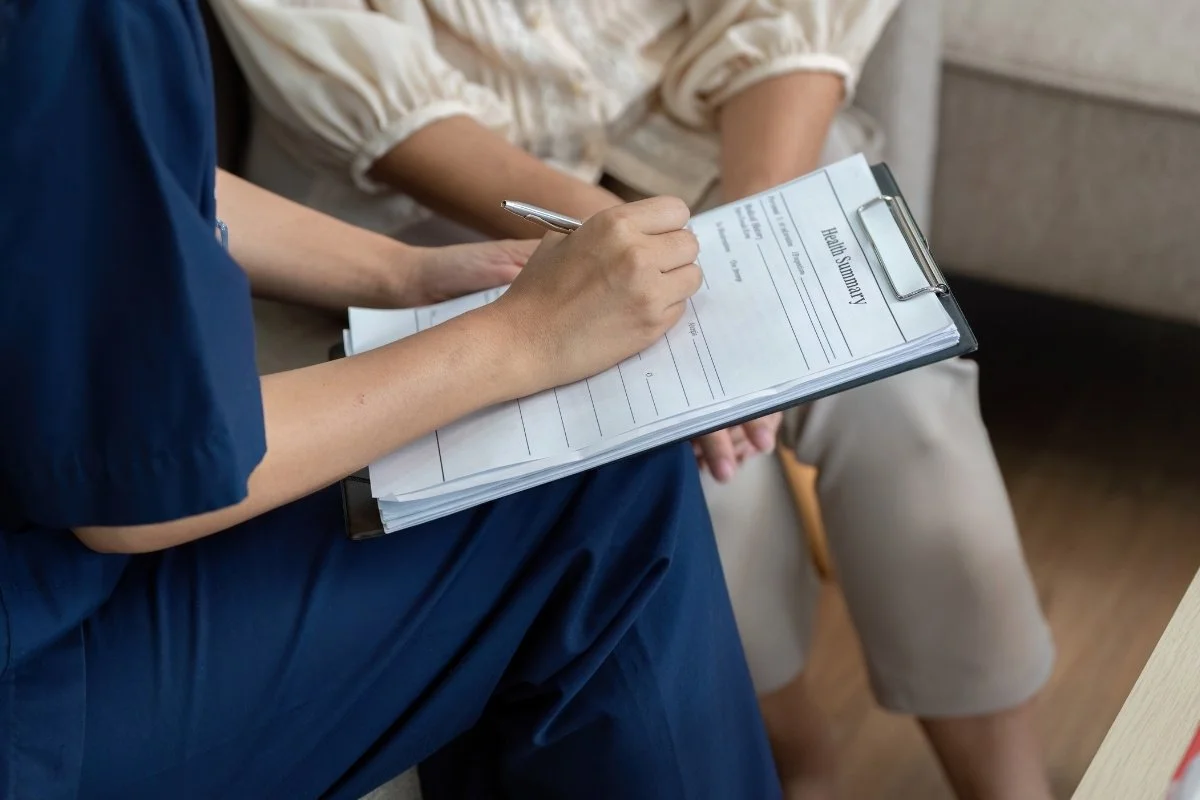Blog
Jungian psychology: the loss and subsequent rebuilding of the self following traumatic brain injury
A recent article published in Neuro Rehab Times details a study that explored the loss and subsequent rebuilding of the self following traumatic brain injury (TBI) through the framing of Jungian analytical psychology.
Researchers develop a tool to assess fear avoidance after concussion
Researchers Liam J. Sherwood et al. recently developed the Fear Avoidance after Concussion Tool (FACT), the first validated patient-reported outcome measure for evaluating fear avoidance following concussion
Post-concussion symptom severity phenotypes predict risk of depression after concussion in adults
A recent study published in BMC Psychiatry found that post-concussion symptom severity, injury severity, and psychological resilience can predict the risk of post-concussion depression in adults.
Practicing self-compassion can mitigate the long-term mental health impact of TBI
An article published by the Brain Health Association of America suggests that practicing regular self-compassion leads to the mitigation of mental health issues after a traumatic brain injury (including concussion).
Healthcare provider education: working with service members and veterans
Dr. Lisa Brenner, a rehab neuropsychologist, gives a comprehensive overview of the research on the relationship between mTBI, blast exposure, and PTSD in military populations, and adds military-specific recommendations for evaluation and treatment.
Gender differences found in concussion assessment; push for a more gender-specific approach
A study published in Neurotrauma identified key gender differences in sport-related concussion (SRC) not captured by standard unidimensional assessment tools––in this case, the Sport Concussion Assessment Tool (SCAT).
Standard assessment tools often miss long-term burden of concussion on older adults
A recent systematic review by Lucas Tze Peng Tan and colleagues found that recovery after a mild traumatic brain injury (mTBI) is often incomplete and longer-lasting for older adults, with ongoing symptoms frequently missed by standard assessment tools.
Concussion patients ages 5-24 experience increased (but still low) suicide risk
An article in the American Journal of Preventive Medicine found that the risk of suicide in patients ages 5-24 increased after sustaining a concussion.
Psilocybin may support recovery after traumatic brain injury
A narrative review in Brain Sciences evaluated 29 studies and found evidence that psilocybin could play a role in recovery after traumatic brain injury (TBI).
Meditation techniques associated with lower cortisol levels for at-risk populations
A recent study suggests that different meditation interventions (particularly those focused on mindfulness) benefit individuals at risk for high cortisol levels––especially for those with a somatic (physical) illness.
Download a free, high-quality mindfulness app
Learn about a free, high-quality mindfulness app created by UCLA Mindfulness Education Center ; our previous newsletter covered meditation, particularly mindfulness, for at-risk populations.
Concussion significantly increases the risk of severe mental health illness post-childbirth
A study found evidence to suggest a link between concussion history and a 25% increased risk of severe mental health challenges in the 14 years after childbirth in comparison to those who have no history of concussion.
Sleep problems, depression, are risk factors for lower quality-of-life scores after concussion
A study investigating health-related quality of life (HRQL) metrics and other psychological factors post-concussion in youth found that that psychological risk factors such as anxiety and depression negatively impact health-related quality of life in the initial 6-month phase of pediatric concussion.
Psychiatric symptoms caused by multiple concussions may be due to the kynurenine pathway and structural changes in the brain in collegiate-aged athletes
A study investigated the link between concussion history, changes in limbic brain structure (the emotional processing system), and psychiatric symptoms, focusing on the kynurenine pathway (KP) as a potential mechanism. The KP is a metabolic pathway connected to inflammation, the immune system, and neurological conditions.
Moderate to vigorous exercise during post-concussion recovery reduces anxiety levels in teens
A study found that engaging in moderate-to-vigorous physical activity during post-concussion recovery can reduce anxiety levels in teens and have other beneficial effects.
Concussions associated with increased risk of children developing behavioral and affective disorders
A study published in JAMA Network Open challenges the existing idea that early childhood concussion may have relatively benign effects and highlights that postconcussive symptoms can be relatively long-lasting.
Study finds more pre-existing mental diagnoses associated with longer recovery time and higher emotional symptom burden
In a study published in Sports Health, Master et al. found that the existence of pre-injury mental health diagnoses correlated with longer concussion recovery time and increased emotional symptoms.
MRI imaging and behavioral testing reveal emotional problems in female children post-concussion may be related to injury-caused delay in maturation of white matter
A study published in Biological Psychiatry
found that concussions may alter the trajectory of white matter maturation in female children and that this alteration may play a role in the onset of new depression and anxiety after concussion.
Mediterranean diet and subsequently improved gut microbiome tied to lower PTSD symptom burden in women
Findings from a recent study in Nature Mental Health exploring the gut-brain-microbiota axis revealed that those who adhered to a Mediterranean diet experienced reduced PTSD symptoms,
Concussions associated with increased risk children developing behavioral and affective disorders
The Journal of the American Academy of Pediatrics published a study that found a significant correlation between children who sustain mild traumatic brain injuries (mTBIs/concussions) and risk of developing affective disorders (anxiety, depression, OCD, or adjustment disorders) and behavioral disorders (ADHD or Conduct Disorder) within four years post-injury.




















